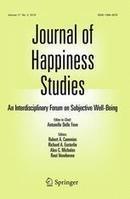Feelings of positive or negative affect are not restricted to temporary states. They can also determine future affective experiences, by influencing the building of an individual’s personal resources. The present study was designed to understand the daily fluctuations in positive and negative affect more fully. To this end, we examined the involvement of a variety of affect regulation strategies in these fluctuations. The affect regulation strategies we explored included positive reappraisal, problem-focused coping, appreciation and rumination. We adopted an experience sampling method, consisting of five daily assessments over a 2-week period. As expected, within a few hours of experiencing more positive affect, participants engaged in greater positive reappraisal, problem-focused coping and appreciation. In turn, greater use of each of these three strategies was followed by more intense experiences of positive affect. We observed analogous reciprocal influences between rumination and the experience of negative affect, within the same time interval. Changes in affective experience over several hours were also directly influenced by concurrent use of these strategies. More specifically, greater positive reappraisal, problem-focused coping and appreciation accelerated the rise in positive affect that follows low feelings of positive affect, and slowed the decline in positive affect that follows high feelings. Rumination had an analogous influence on change in negative affect. The clinical implications of these findings are discussed.
Via Dr James Hawkins



 Your new post is loading...
Your new post is loading...








Las estrategias de regulación del afecto y las emociones positivas se influyen mutuamente. El reencuadre positivo, el manejo de los problemas y el aprecio aumentan las emociones positivas y éstas a su vez favorecen el uso de estas estrategias. Lo mismo pasa con la rumiación y los afectos negativos: se refuerzan mutuamente.